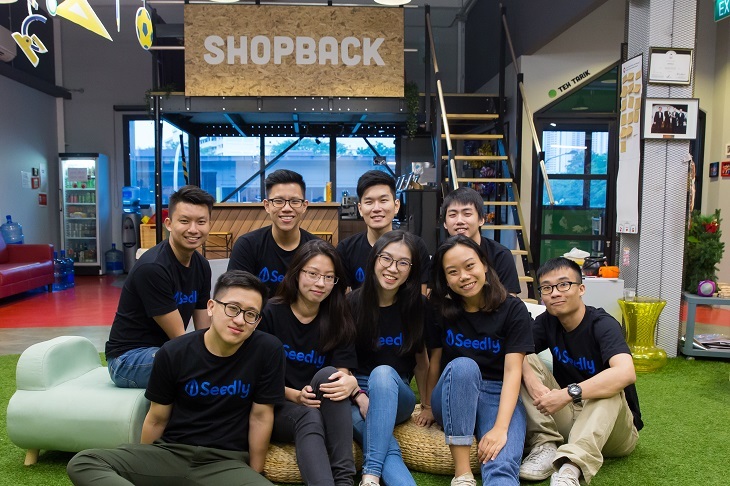
Grab will launch three new services in the coming weeks. / Photo credit: BYD
Today’s top stories include ShopBack’s purchase of Seedly, Grab’s announcement of three new services, and Alibaba’s acquisition of Daraz.
Transportation
Grab rolls out new services (Singapore). The ride-hailing company will launch three new services beginning today, said country head Lim Kell Jay. Aimed at commuters with mobility needs, GrabAssist features vehicles that can accommodate equipment such as foldable wheelchairs and helmed by drivers trained to provide help. GrabCar Plus offers newer, more spacious cars, and will be available by the end of May. GrabFamily (Ages 1-3) – an extension of its GrabFamily (Ages 4-7) service – will be rolled out in late June. Lim also gave other updates on the company: proposed service GrabFood is in its beta phase, while talks with the Competition and Consumer Commission of Singapore regarding the Grab-Uber merger are “going well.” (Channel News Asia)
Ecommerce
Alibaba scoops up Daraz (China). The Chinese tech giant has fully acquired the online shopping company, which operates in Pakistan, Bangladesh, Sri Lanka, Myanmar, and Nepal. Daraz will retain its brand name and plans to leverage Alibaba’s experience in ecommerce to further drive its growth in its South Asian markets, which cover 460 million people. The companies didn’t release any financial details about the deal. (Tech in Asia)
Infibeam buys Unicommerce (India). The ecommerce firm is purchasing the cloud-based inventory management company from its parent Snapdeal for US$18 million. After the sale closes in three to five months, Unicommerce will become a wholly owned subsidiary of Infibeam. Unicommerce provides end-to-end ecommerce solutions such as warehouse management, ecommerce order processing, and inventory management for brands and online sellers. (DealStreetAsia)
Government report shows WeChat drove almost US$33 billion in consumption last year (China). The figure marks an average annual growth of more than 30 percent from 2014, which represents 4.7 percent of the country’s total information consumption, according to the China Academy of Information and Communications Technology. The most popular app in China, WeChat is where Chinese consumers choose services, order food, and hail rides, among other purchases. In total, the app accounts for 34 percent of the country’s data traffic, which is comparatively bigger than Facebook’s 14.1 percent in South America and 23.6 percent in Latin America. (TechNode)
Fintech

The Seedly team in ShopBack’s Singapore office / Photo credit: Seedly
ShopBack acquires Seedly (Singapore). The online product comparison and rewards platform has purchased the millennial-focused personal finance startup. The acquisition – ShopBack’s first – was made via a mix of cash and equity, but other details were not disclosed. Seedly CEO Kenneth Lou says the company will continue operating under its own brand and is looking to double its nine-person team. Seedly’s app helps users connect their bank accounts, credit cards, and receive reports on their spending habits. (Tech In Asia)
Regulators grant first “restricted” banking license to internet-only startup Volt Bank (Australia). The Australian Prudential Regulation Authority (APRA) hopes the new accreditation will stimulate competition in the industry. Volt has amassed US$11.7 million through equity for testing and research, and the license will enable it to raise US$1.5 million in deposits via its online platform, according to a company spokesperson. Based on APRA guidelines, restricted licensees can label themselves a “bank” but aren’t allowed to “actively” do business. They also have two years to become fully licensed. (DealStreetAsia)
Blockchain and cryptocurrencies
Bezant reaches pre-sale target, oversubscribed 7.5 times (Singapore). The decentralized payment and service platform launched its token pre-sale on May 3, hitting US$16.8 million and receiving 7.5 times more applications at US$126 million as it concluded. Because of high demand, Bezant also opened a pre-sale bonus round of US$4 million the next day, which ended in five minutes. Bezant says the opportunity is huge, with consumer spending on mobile app stores this year is expected to go beyond US$110 billion, and ecommerce sales at US$4.5 trillion by 2021. The company focuses on mobile apps, games, and ecommerce in emerging markets. (Bezant)
Social media
After going viral, Tencent’s photo-editing app hit with privacy concerns (China). Called Tiantian P-Tu in honor of the country’s May Fourth Movement of 1919, the app lets users create selfies that make them look like they were taken during the last century. Experts warn that users who upload their photos might encounter security issues, mainly because the app company never asks permission before accessing the camera and possibly sharing the images. Tencent allayed fears by stating that personal data will never be stored. (TechNode)
Media and entertainment
Douyin gets most downloads from iOS App Store (China). In the first three months of 2018, the popular short-video app has been downloaded a total of 45.8 million times from the store, surpassing social media apps Facebook, Instagram, and fellow video content provider YouTube. Owned by Beijing-based Bytedance, the app recently got worldwide attention after banning British cartoon character Peppa Pig from its content lineup for alleged subversive messaging. (TechNode)
Retail
Aibee raises US$15.7 million from K11 owner (China). The artificial intelligence solutions provider received the strategic investment from Hong Kong mall operator Adrian Cheng Chi-kong. Cheng’s K11 mall chain and Aibee will partner in technologies and explore new businesses towards precise retailing. The AI company develops retail technologies such as facial recognition, human detection tracking, product IDs at stores, augmented reality, and voice recognition. (China Money Network)
Consumer tech

Xiaomi’s flagship store in Shenzhen / Photo credit: Xiaomi
Xiaomi gunning for European smartphone market (China). Less than a week after filing its IPO, the Chinese company announced plans to enter the French and Italian markets later this month. The lineup of devices going on sale is expected to be the usual mix of smartphones, accessories, and related products, and would involve either the opening of a localized online store or tie-ups with local online and offline retailers. (TechCrunch)
Huawei tops smartphone sales in China (China). However, rival Oppo is slowly gaining ground, according to a new report from user activity and marketing analyst Jiguang. China’s top five phones for the first quarter of 2017 were Huawei, Oppo, iPhone, Vivo, and Xiaomi. Huawei held more than 25 percent of sales in Q1 2017, followed by Oppo and Vivo. Meanwhile, sales of Apple’s iPhone continue to decline. Geographically, around 50 percent of iPhone users come from China’s biggest and most populated cities, with Oppo and Vivo users in smaller cities and towns, and distribution of users for Huawei and Xiaomi mostly equal. (TechNode)
Travel and hospitality
Wegogo raises US$958,000 in pre-series A backing, launches ICO (China). The travel tech company received the new funds in a round led by AirAsia China president Kathleen Tan, and ITM Capital, bringing total investments of US$2 million to date. With her personal investment, Tan will also serve as the company’s strategic advisor. Wegogo is an online platform on WeChat that assists travelers with trip planning, booking, and payments. On May 15, the company will launch the initial coin offering of its WeGold Travel Tokens, opening its service to blockchain technology. (Wegogo)
Travelio raises US$4 million series A funding (Indonesia). The round was led by venture capital firm Vynn Capital. The Indonesian online short-term home rental provider will use the money to accelerate growth, launch new verticals, hire talent, and innovate products. Through its online platform, Travelio helps property developers and owners lease or manage their vacant properties in Indonesia. Other investors that joined in this round were Fenox Venture Capital, Stellar Kapital, IndoGen Capital, and Insignia Ventures Partners. (e27)
Investors, incubators, and accelerators
Monk’s Hill to raise US$120 million fund (Singapore). Sources say this will be the Singapore-based VC firm’s second fund aimed at investing in early-stage, series A, and series B backing rounds. This new fund is around 50 percent more than the company’s maiden fund, which closed at around US$85 million in 2016. (DealStreetAsia)
See: Previous Asia tech news roundups
This post Asia news roundup: ShopBack buys Seedly, Alibaba gets Daraz, Grab adds services, and more appeared first on Tech in Asia.
from Tech in Asia https://www.techinasia.com/apac-news-08-05-2018
via IFTTT
No comments:
Post a Comment